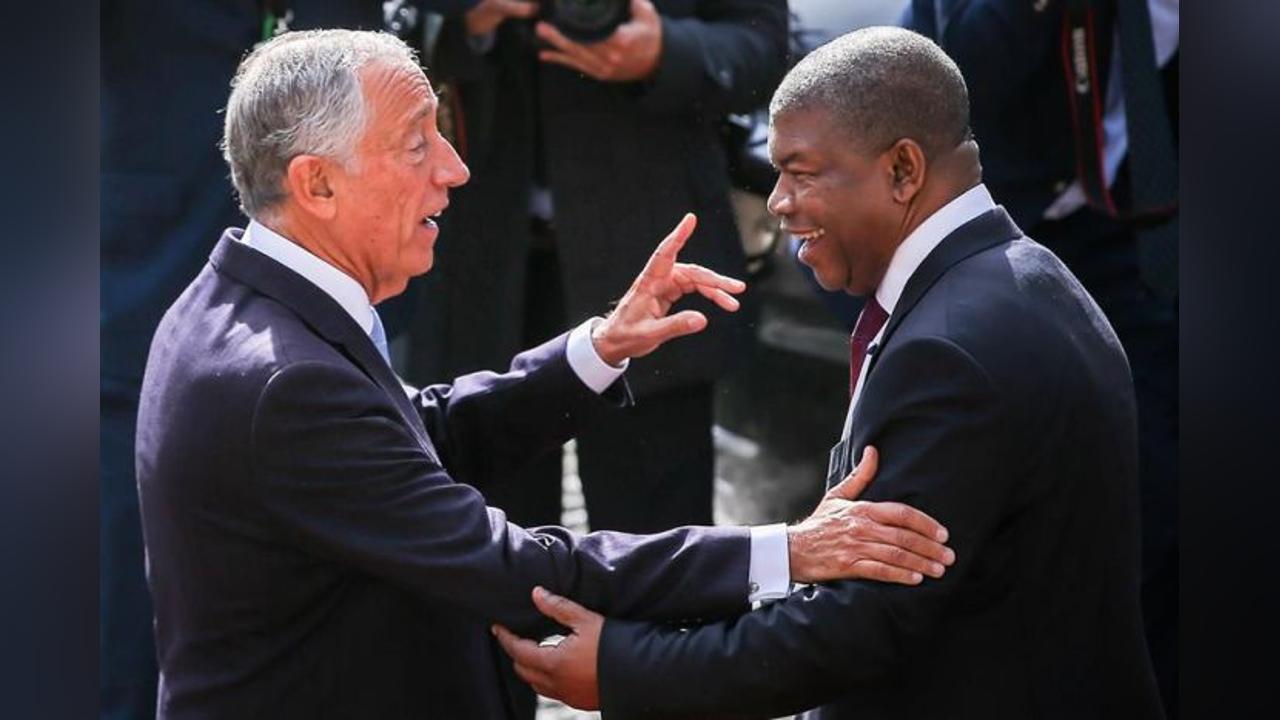Africa-Press – Angola. An analyst also told that Angolan President João Lourenço will not have the “courage” to criticize the new Foreigners Law in Portugal. JLo’s official visit to Portugal begins this Friday.
The Angolan President’s arrival in Portugal comes amid a delicate context, with changes to immigration legislation that are causing concern within the Angolan community and promising to impact the bilateral agenda. How will João Lourenço address the issue without damaging diplomatic relations?
The Angolan Head of State arrives in Lisbon this Thursday (July 24) for an official visit to Portugal, which begins tomorrow, at a tense time due to the recent approval of the new foreigners’ law. This could affect the country’s growing Angolan community, where thousands have emigrated in search of better conditions, making migration a central issue in bilateral relations.
João Lourenço admitted there is “some discomfort” with the new rules, which have already drawn public criticism from Brazil. Angola has not yet expressed an official position, but is monitoring the situation closely. João Lourenço confirmed that he will address the issue in institutional contacts, defending not only Angolans, but all Africans in Portugal, from the perspective of the African Union.
The new law limits family reunification to minors, restricting the African community. On the other hand, it facilitates family reunification for residents with “more qualified” authorizations, such as investors and specialized professionals.
Late Thursday afternoon, Portuguese President Marcelo Rebelo de Sousa sent the bill back to the Constitutional Court for review. For the bill, promoted by the country’s Prime Minister, Luís Montenegro, and the far right, to become law, it requires the president’s approval, as he also has the power to veto it.
When asked whether this issue could impact bilateral relations, Angolan international relations expert Herlander Napoleão said no. Napoleão believes that João Lourenço “will not have the same courage” to criticize the law in question in Portugal. And given the history between the two countries, “relations will continue to perform well.”
How should the African leader address the issue in Lisbon?
Herlander Napoleão (HN): I don’t believe this will create any major turmoil from a regional perspective on the African continent. And on the European continent as well. The President is on his way to Lisbon, and I don’t know if he’ll have the same courage to utter the same words when he’s in Portugal, perhaps very euphemistically. But I don’t believe a law approved by the Portuguese Parliament can be reversed because of some comment from an African leader.
Do you believe that potential tensions surrounding the Immigration Law could jeopardize bilateral relations between Portugal and Angola?
HN: No. I think the Angolan President has his mouth close to his heart. And sometimes these pronouncements end up being, in my view, unrealistic, because it’s impossible to measure who depends more on whom. Whether Portugal depends more on Angola or Angola depends more on Portugal.
To what extent could migration tensions affect economic cooperation between Angola and Portugal?
HN: President João Lourenço gave an interview two days ago in which he stated that Portugal is not the gateway for Angolans to Europe. This is false, because most Angolans, when they emigrate to Portugal, emigrate to Europe; their point of departure and arrival is Portugal. And then they detour to other countries.
Therefore, I must say that I don’t know if the impact will be very significant. Angola has economic relations with Portugal, historical relations. Angola is primarily an exporter of fuels and raw materials to Portugal. Previously, Portugal was a country that imported or exported, in this case, finished materials, agricultural products, food products, beverages, construction materials… Therefore, I believe relations will continue to perform well.
President João Lourenço even mentioned Brazil in this issue of the discomfort caused by Portugal’s foreigners’ law, and Brazil has said it will reciprocate. Do you believe Angola will have the courage to do the same?
HN: I don’t really believe it. And it’s a shame, because a few years ago, more than 20, 30 years ago, there was a diplomatic incident between Portugal and Brazil, which was related to driver’s licenses. I think at the time it was mandatory for Brazilians to either obtain their driver’s license or exchange it in Portugal. And Brazil took the same stance with Portugal. Brazil managed to put its foot down and treats Portugal with the same rigor and the same way Brazilians are treated [in Portugal].
Not long ago, there was an attempt to legalize illegal immigrants in Portugal with AIMA, in which Angolans faced very serious difficulties from the point of view of legalization, and it was felt that Brazilians were much more organized and did not need to go through a thorny path, as did, for example, Angolans – who were forced to spend the night at AIMA to get appointments to be able to submit the documents to apply for their legalization and be able to obtain a residence card.
In this regard, I think Brazilians have been a role model. A visa isn’t required for Brazilians to enter the European Union or Portugal. Brazilians arrive in Portugal and, at the border, receive an entry visa and enter. And the same applies to Portuguese citizens in Brazil. It’s not the same for Angolans. In fact, all you have to do is be in Luanda and the Angolan capital and go to the Portuguese consulate. There are lines of people waiting for a visa for miles. Therefore, I don’t believe Angola will adopt this reciprocal measure. If it does, it will surprise me greatly.
angola24
For More News And Analysis About Angola Follow Africa-Press






